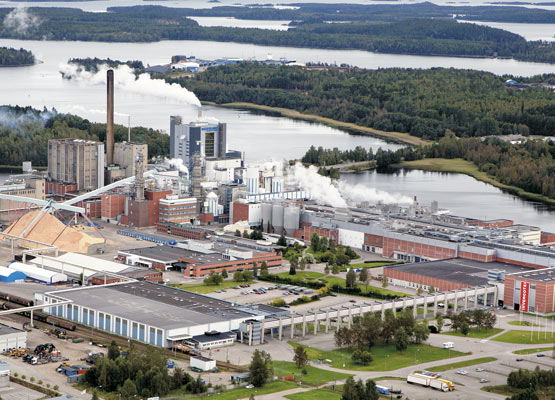Paperboard gift cards lessen the environmental impact of Christmas
/INS. What can we give as a Christmas present when we don’t know what the other person wants? A gift card is one option that always works. But gift cards have changed over the past decade or so. What used to be a written commitment has become packaged offerings of money, experiences, music or other items, often in the form of a credit-card-sized PVC card.
How do these plastic cards in our wallets affect the environment? Estimates in the United States conclude that five new cards are produced there per inhabitant per year. The equivalent for Europe would mean the production of 2.5 billion cards annually, resulting in the emission of 52,500 tonnes of fossil carbon dioxide.
“If we replaced those plastic cards with ones made of virgin fibre paperboard, the emissions would only be one-thirtieth of what comes from making the plastic cards in the best scenario,” explains Jonas Adler, Business Development Director for Iggesund Paperboard.
In the United States a debate about the carbon emissions from all these plastic gift, discount and membership cards has been going on for some years now and has led to a growing demand for gift cards made of paperboard. This trend is now making its way to Europe.
“A number of American manufacturers have chosen paperboard as the base material for their cards for environmental reasons,” Adler says. “European manufacturers are now also considering the environmental effects of their choice of material. Normally Europe is ahead of the US when it comes to reducing this type of emission but in this case we are lagging behind.”
Driving the new trend is the difference in carbon footprint between the two materials. A paperboard card weighs just over half as much as a plastic card. The paperboard card leads to the release of only one-thirtieth of the amount of fossil carbon produced from making the plastic cards, based on the published values for Iggesund’s Invercote Duo paperboard and the plastics used for the cards.
Invercote Duo, which is one of Iggesund’s standard products, performs well in the card manufacturers’ processes and has been a success among American card manufacturers.
Even though the difference in emissions between the two card materials is huge, this is not the most urgent environmental issue but it can be an important symbolic step for a company to take.
“For a company that issues hundreds of thousands of plastic cards, the difference in environmental impact is great enough that it cannot be ignored,” comments Ola Buhrman, Technical Product Manager of the card product line. “Our experiences from the US and the fact that we have a standard product which functions like clockwork in the processes make us very competitive. And it’s technically easy for card producers to switch materials.”
He emphasises that Invercote Duo meets ISO/IEC 7810 and 7811, which specifies the dimensional stability and flatness required for the gift cards to function in a card reader. Invercote can handle complex printing processes and finishing steps like embossing, and it is not difficult to integrate a magnetic strip or a chip. For extra durability a bio-degradable coating layer can be applied.
Invercote is made at Iggesund Mill in Sweden. Bioenergy supplies more than 98 per cent of the mill’s energy needs and Invercote has one of the smallest carbon footprints on the paperboard market. In 2012 Iggesund Paperboard had its highest production level ever while simultaneously having the lowest emissions of environmentally harmful substances since it began manufacturing paper products almost a century ago.
“Yet another advantage of Invercote is that it can be supplied made from certified raw material and it is certified compostable in accordance with the EN 13432 standard,” Jonas Adler concludes. “All in all, it’s a perfect base material for all gift card manufacturers who want to minimise their environmental impact.”
Caption: Switching from plastic gift cards to paperboard ones is an easy way for companies to reduce their environmental footprint. © Iggesund
Iggesund
Iggesund Paperboard is part of the Swedish forest industry group Holmen, one of the world’s 100 most sustainable companies listed on the United Nations Global Compact Index. Iggesund’s turnover is just over €500 million and its flagship product Invercote is sold in more than 100 countries. The company has two brand families, Invercote and Incada, both positioned at the high end of their respective segments. Since 2010 Iggesund has invested more than €380 million to increase its energy efficiency and reduce the fossil emissions from its production.
Iggesund and the Holmen Group report all their fossil carbon emissions to the Carbon Disclosure Project. The environmental data form an integral part of an annual report that complies with the Global Reporting Initiative’s highest level of sustainability reporting. Iggesund was founded as an iron mill in 1685, but has been making paperboard for more than 50 years. The two mills, in northern Sweden and northern England employ 1500 people.
Further information:
Staffan Sjöberg
Public Relations Manager
staffan.sjoberg@iggesund.com
Iggesund Paperboard
SE-825 80 Sweden
Tel: +4665028256
Mobile: +46703064800
www.iggesund.com












Let us know if you are going to use this press release. Thank you!